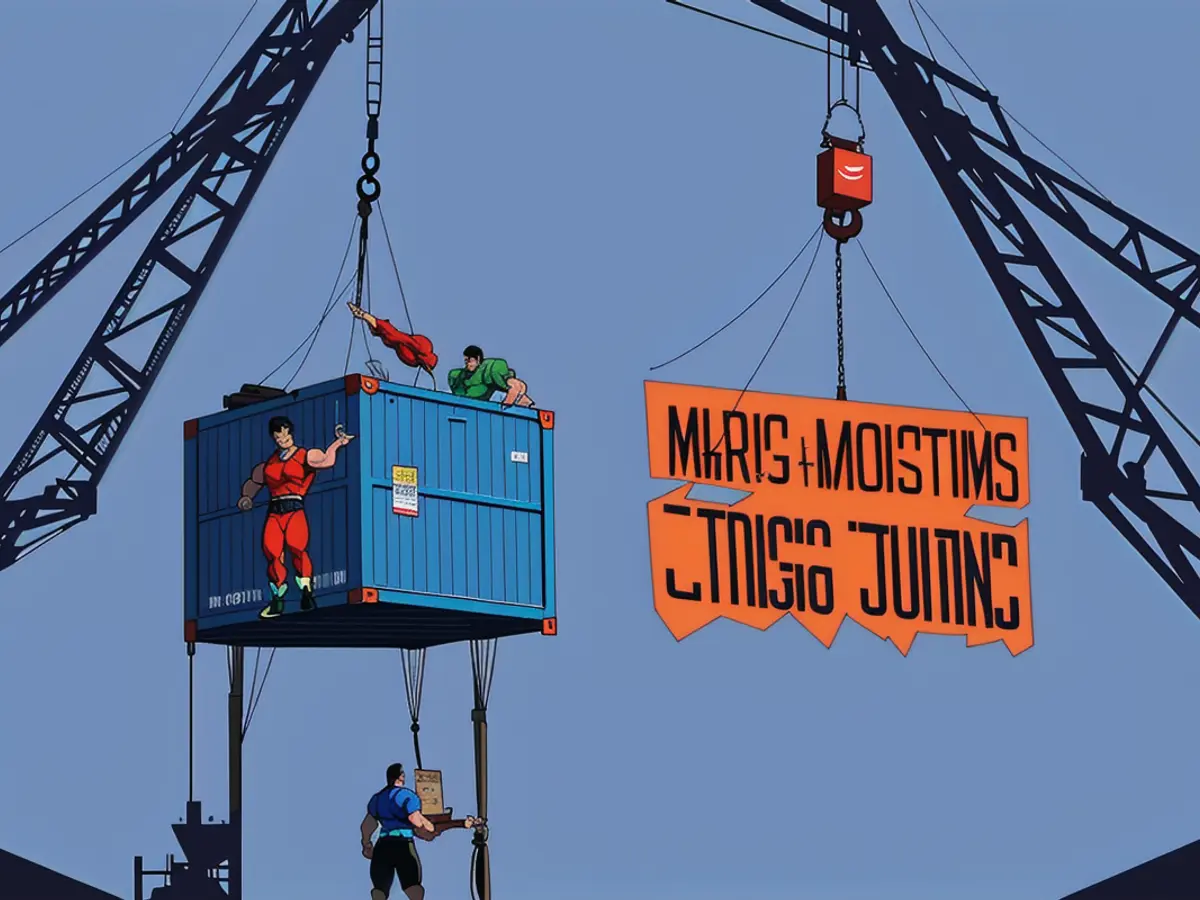Automakers in Europe Brace for Intense Challenges in 2025, Despite Persisting Advantages
In 2025, Europe's automakers are grappling with numerous existential challenges, but the situation isn't all gloomy, offering some comfort to anxious investors. The headlines aren't encouraging, with keywords such as CO2, China, tariffs, restructuring, and Germany dominating. Despite the widespread pessimism, Morgan Stanley and Evercore ISI see potential advantages for investors.
The most pressing issue revolves around the European Union's carbon dioxide emission regulations, which could result in heavy fines for non-compliant manufacturers. These rules aim to persuade reluctant Europeans to purchase electric vehicles and gradually prohibit the sale of new internal combustion engine vehicles, with all new models being banned by 2035. The EU Commission President, Ursula von der Leyen, plans to launch the Strategic Dialogue on the Future of the European Car Industry this month, and the dilution of these CO2 rules will be a key topic.
Manufacturers struggling to meet the EU mandate are faced with hiking the prices of their most profitable internal combustion engine vehicles, not to boost profits but instead to curb sales and subsidize electric vehicles. This move negatively impacts profits.
Luca de Meo, the CEO of Renault and the president of the European Automobile Manufacturers Association, warns that European auto manufacturers could be fined up to €15 billion ($15.5 billion) for failing to meet the EU's 2025 CO2 emissions targets.
There's the looming threat from China, despite increased tariffs. Moreover, the incoming administration of President Trump has caused alarm and despair with its references to potential tariff barriers. This is unsettling for Europe, as its products currently carry a 2.5% tariff in the U.S. while the tariff is 10% for products moving in the opposite direction.
The threat from China, with its 30% efficiency advantage, is compelling traditional manufacturers to consider drastic measures, such as closing unnecessary production facilities. Volkswagen threatened to shut down 3 factories, but later reconsidered after negotiations with unions. Stellantis and its 14 brands are also said to have an excessive number of factories, and the replacement of Carlos Tavares, the CEO, will have tough decisions to make.

Average European auto sales of sedans and SUVs have declined significantly, from an average of 18 million a year between 2017 and 2019 to between 13 and 15 million between 2020 and 2024, according to French automotive consultancy Inovev.
Germany, Europe's largest auto market, is in a dire state. The order backlog for the German auto industry is at a 10-year low, with sales in 2025 expected to be similar to 2024's 2.8 million, compared to a peak of 3.6 million sedans and SUVs in pre-covid 2019.
Professor Ferdinand Dudenhoeffer, director of Germany's Center for Automotive Research, states that the German auto industry's order backlog is at a 10-year low. Sales in 2025 will not surpass 2024's 2.8 million. This contrasts with a peak of 3.6 million sedans and SUVs in pre-covid 2019.
Professor Stefan Bratzel, director of Germany's Center of Automotive Management, emphasizes the need for government action to restore German industry's competitiveness. The early general election next month will delay necessary structural reform in Germany, causing a significant burden for the auto industry.
GlobalData summed up the general consensus on 2025's prospects. "We believe that growth should accelerate in 2025 due to the introduction of new models and more monetary easing. Despite this, ongoing geopolitical tensions, along with the collapse of the German and French governments, present considerable uncertainty that will negatively impact sales," GlobalData stated in a report.

GlobalData predicts that Western European sales will increase by 2.3% to 11.71 million compared to last year's 0.9% decline. Investment bank UBS maintains its long-held view that 2025 will be a challenging year for automakers, with prices under pressure, stringent CO2 regulations (although there is potential for long-term mitigation), tariff risks, and weak demand, leading to lower profits amid factory closures.
Investment researcher Evercore ISI suggests that the negative themes that emerged in 2024 will persist in 2025 but also points to some promising developments. "Do we think this malaise will continue throughout the year? That’s the optimistic view in our 2025 outlook. We do not necessarily believe so," Evercore ISI stated in a research note. It anticipated that mid-year sales could start to rebound, and 2026 production schedules might look promising.
"Have any of the long-term headwinds dissipated? Mix, EV, Lacklustre legacy tech. No. But rising volumes are a surefire sign of recovery for any auto ailment," Evercore ISI concluded. Morgan Stanley revised its outlook for Europe's auto manufacturers in 2025 from "Cautious" to "In-Line."
"We see a more balanced risk/reward with some margin downside but also opportunities that the market is overlooking," Morgan Stanley stated in a report. The plus points include the recovery of SUV and sedan affordability, potentially some easing of EU regulations, and pent-up demand building and improving affordability.
Upcoming tariff talk could increase public focus on this matter. It's possible that Chinese auto manufacturers might form partnerships with European counterparts to expedite electric vehicle adoption. Simultaneously, these collaborations could provide Europeans with access to Chinese technology superiority. As per Morgan Stanley's analysis.
The EU Commission's Strategic Dialogue on the Future of the European Car Industry will discuss the potential dilution of CO2 rules, which are leading to increased prices of internal combustion engine vehicles to curb sales and subsidize electric vehicles. This move negatively impacts profits for manufacturers.
Despite facing heavy fines if they fail to meet the EU's 2025 CO2 emissions targets, manufacturers like Renault and its CEO Luca de Meo warn of potential fines up to €15 billion.
The threat from China, with its 30% efficiency advantage, is compelling traditional manufacturers to consider drastic measures, such as closing unnecessary production facilities. This is a concern for companies like Volkswagen and Stellantis, which have excessive factories and are facing tough decisions due to leadership changes.
The average European auto sales of sedans and SUVs have declined significantly from 2017 to 2024, with Germany, Europe's largest auto market, experiencing a 10-year low in order backlog and expected sales in 2025 similar to 2024's levels.
Morgan Stanley has revised its outlook for Europe's auto manufacturers in 2025 from "Cautious" to "In-Line," citing potential opportunities such as the recovery of SUV and sedan affordability, potential easing of EU regulations, and pent-up demand building.






